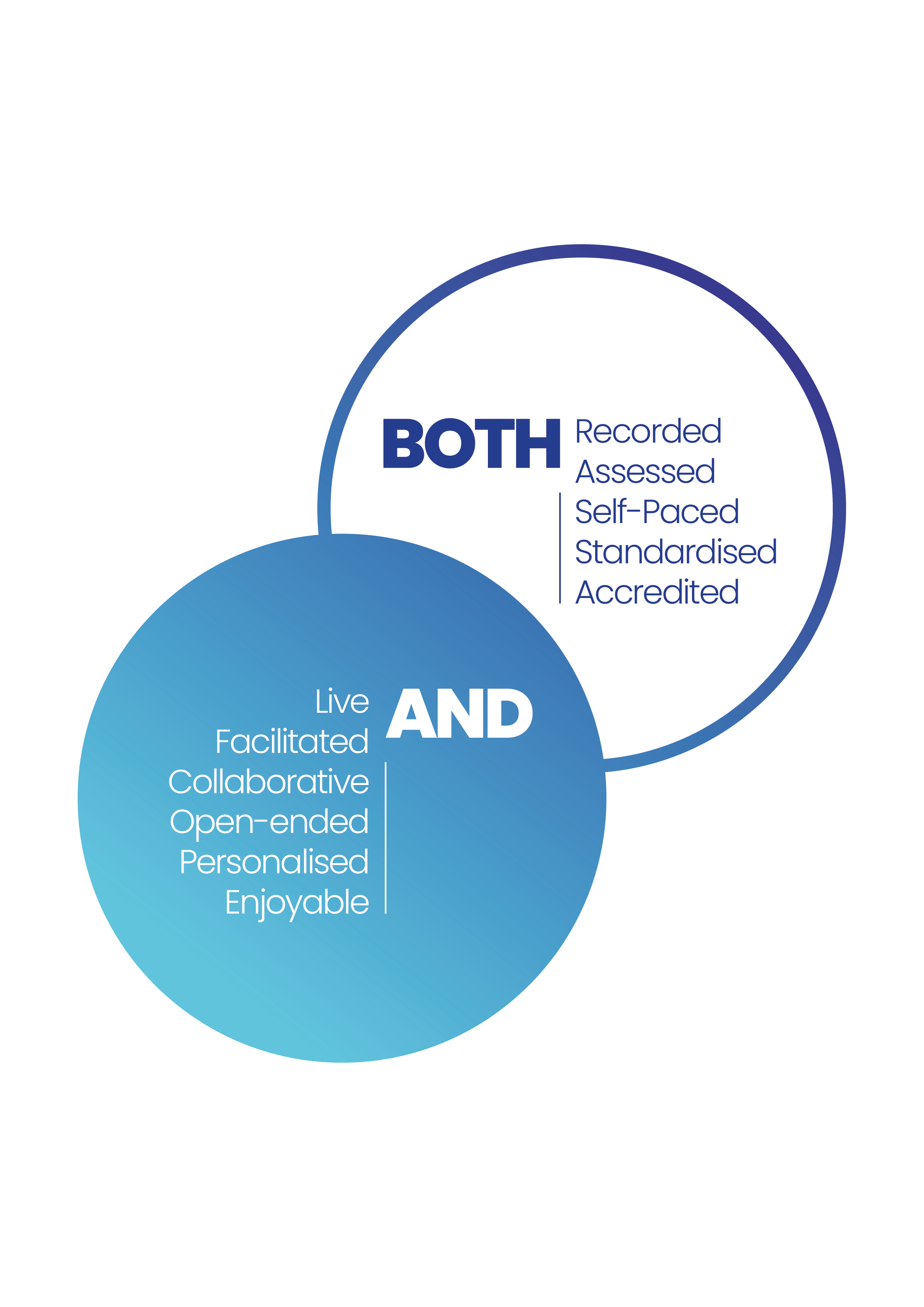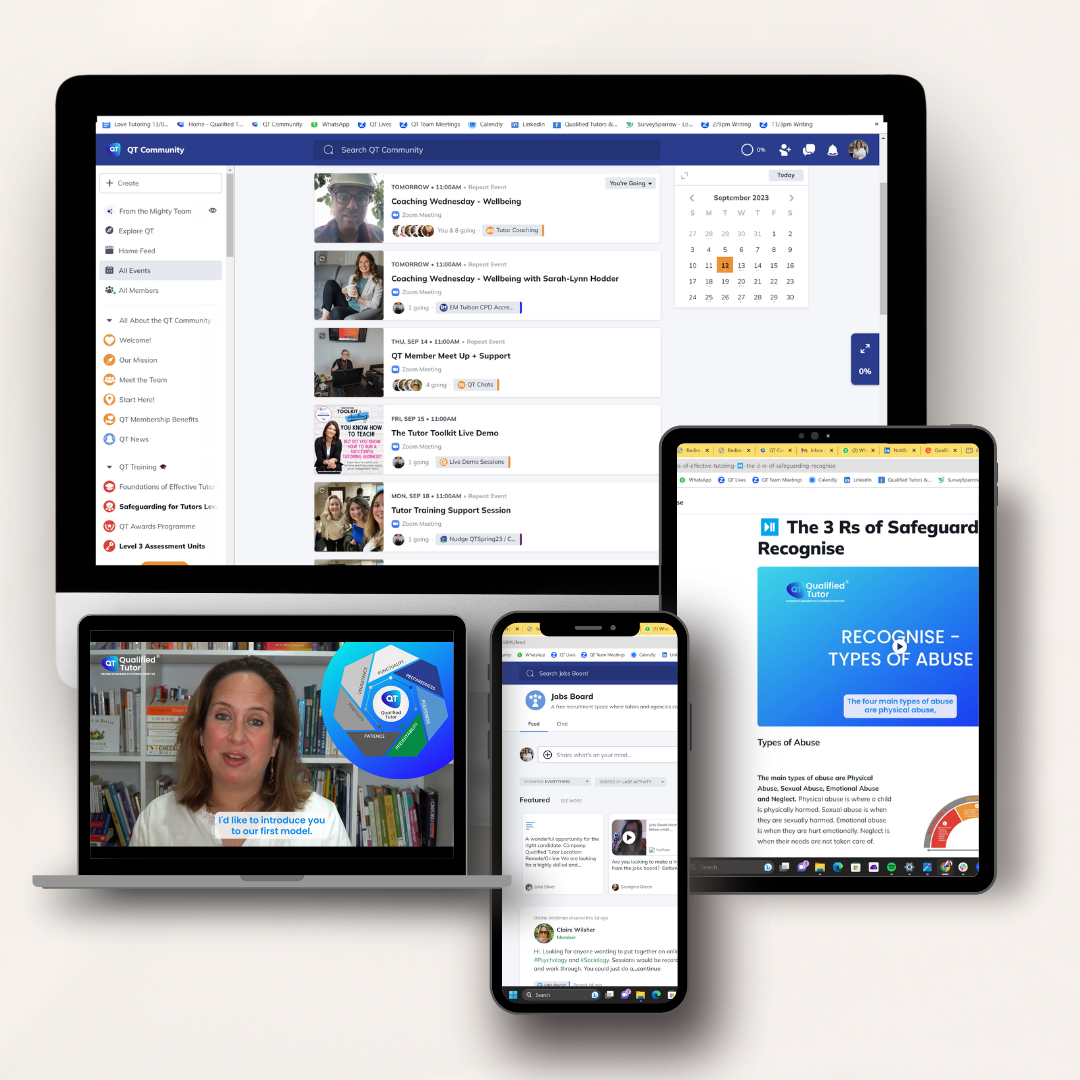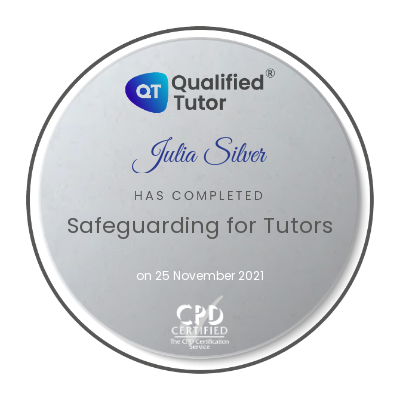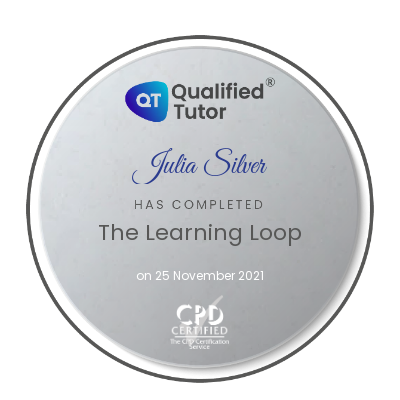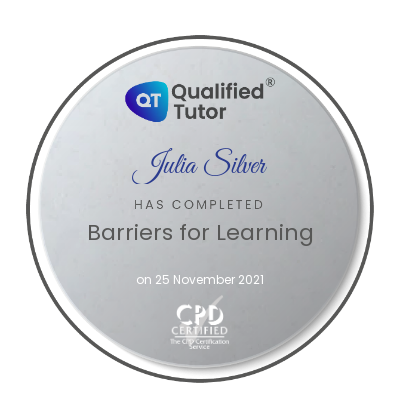Level 3 Award in Education & Training
Ofqual Accredited | Feedback Focused | Engaging content | QT Community included
Our Level 3 Qualification is for ambitious tutors of all subjects and levels of expertise who appreciate the importance of continuous professional development and reflective practice.
This course will allow you to think about the big ideas in education today, and to engage in a professional dialogue with like-minded people.
This qualification is a Level 3 in Education and Training, internationally accredited by Ofqual. Completion will provide you with our QT Quality Mark, a shareable verifiable digital credential which will help to set you apart as a qualified tutor.
Course Syllabus
Unit 1 – Safeguarding for Tutors
Unit 2 – Relationship Matters
Unit 3 – The Learning Loop
Unit 4 – Barriers for Learning
Unit 5 – Powerfdul Feedback
Unit 6 – Live Topic Review
Unit 7 – Written Assessment

